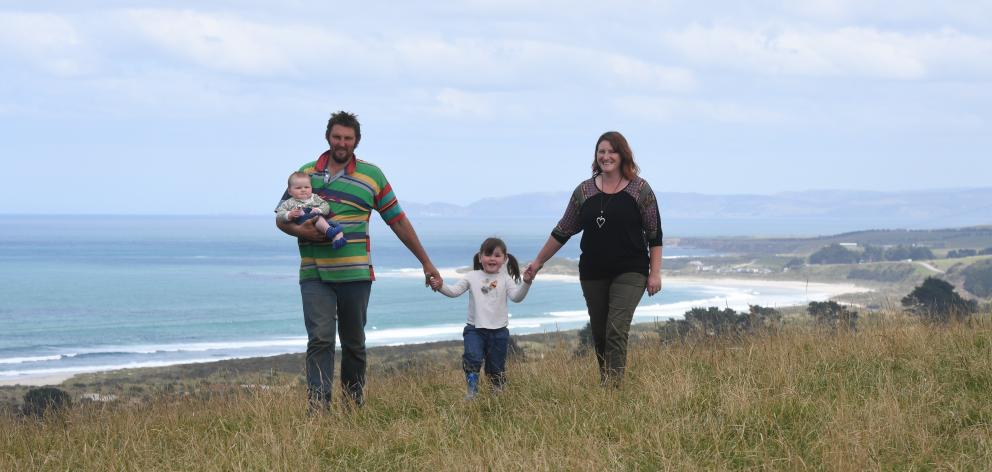
He replaces Phill Hunt, who stood down at the organisation’s annual meeting in Balclutha last week.
Mr Davies (46) farms Coombe Hay, a 750ha property 50km south of Dunedin and 15km southeast of Milton, with wife Joanna and their young daughters Georgina and Juliette.
With a keen interest in governance, he had been wanting to progress himself and Federated Farmers was an organisation that interested him.
Federated Farmers sponsored him on a leadership course 18 months ago that he really enjoyed, and he was then asked to come along to an Otago executive meeting to give a report.
Mr Hunt commented that there were several empty roles, and Mr Davies thought that it was something that he could get involved with.
He was a little apprehensive about taking on the vice-president role last year, knowing he would likely be lined up for president this year.
But then he went to the organisation’s national conference in June last year and greatly appreciated it, which encouraged him to take the role on.
Mr Davies has an interesting and diverse background; brought up on a Taranaki sheep and beef farm, he completed a food technology degree at Massey University.
He spent four years with what was Crop and Food Research in the seafood unit in Nelson, followed by six months at Sealord.
That was followed by five years travelling around the world, working in seafood processing plants.
Returning to New Zealand, he ran a wet fish plant in Nelson before returning to farm the family property.
He also bought a small food processing business in New Plymouth which produced hummus and feta dips and spreads and supplied Progressive Enterprises supermarkets.
Believing there were better opportunities in sheep farming in the South Island, he and his wife moved to South Otago.
Asked what he wanted to achieve during his Federated Farmers tenure, Mr Davies said he just wanted to ensure farmers retained their "social licence" to farm, and were not unfairly targeted.
"To make sure farmers are treated fairly, that’s all I can ask," he said.
He was heartened by comments made by Otago Regional Council chief executive Sarah Gardner at the province’s annual meeting about the need to work in partnership with farmers.
Federated Farmers was "pretty keen" to work with her, and he had invited Mrs Gardner to visit his own farm and have a look around.
Mr Davies was keen to get more younger people involved with Federated Farmers and he was thrilled that Mat Korteweg had taken on the Otago dairy chairman’s role, while Logan Wallace was vice-chairman for meat and wool.
Otago Federated Farmers continued to have a gradual decline of membership and Mr Davies urged non-members to join.
A lot of work that Federated Farmers staff did was "hidden" — "it’s not hauled up on banners to celebrate, it’s dull, dreary policy work but it’s critically important," he said.
Being uninformed was not an excuse any more and farmers had to be involved with what was going on.
Farming was not the "romantic industry and lifestyle" that was often portrayed on television and it was unfortunate a lot of New Zealanders did not understand that, he said.
Mr Davies was looking forward to the role, saying he was a little apprehensive about the workload and the amount of time off-farm, but he would deal with that.
A bonus for the self-confessed workaholic was the opportunity to get off-farm and meet some really good people, he said.
Comments
The best way to ensure farmers aren't "unfairly targeted" is to have defensible performance environmentally and good water quality in rural areas. Talking about all of the great things some farmers are doing does not make the water quality good (yet).
Keep on pushing your farmers to improve, show the water quality improvements and you will have the data to push back against "unfairness".













